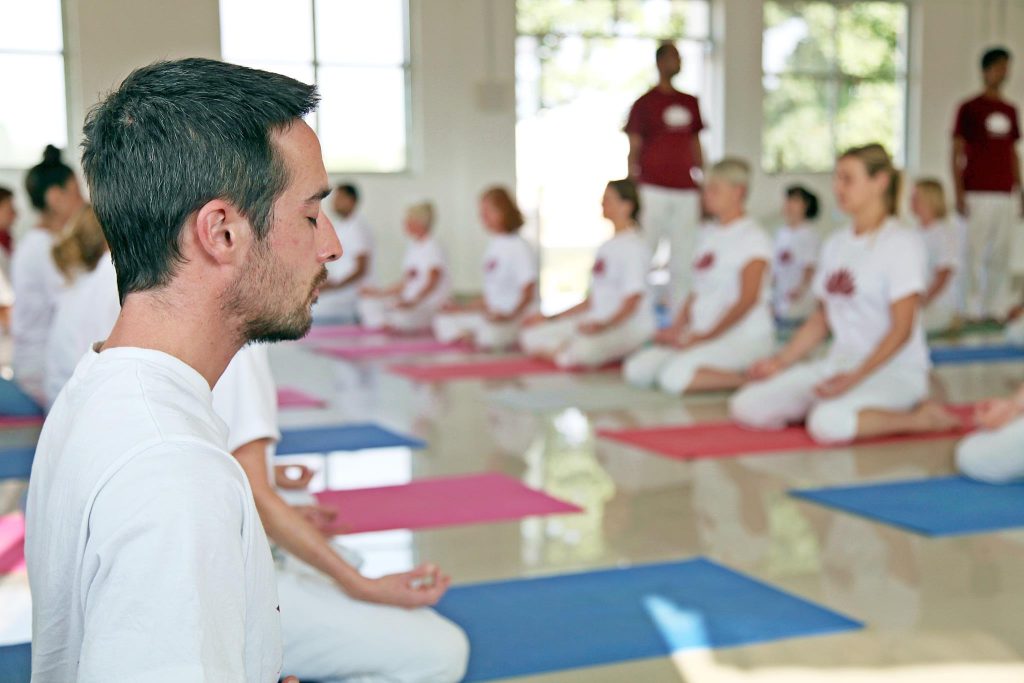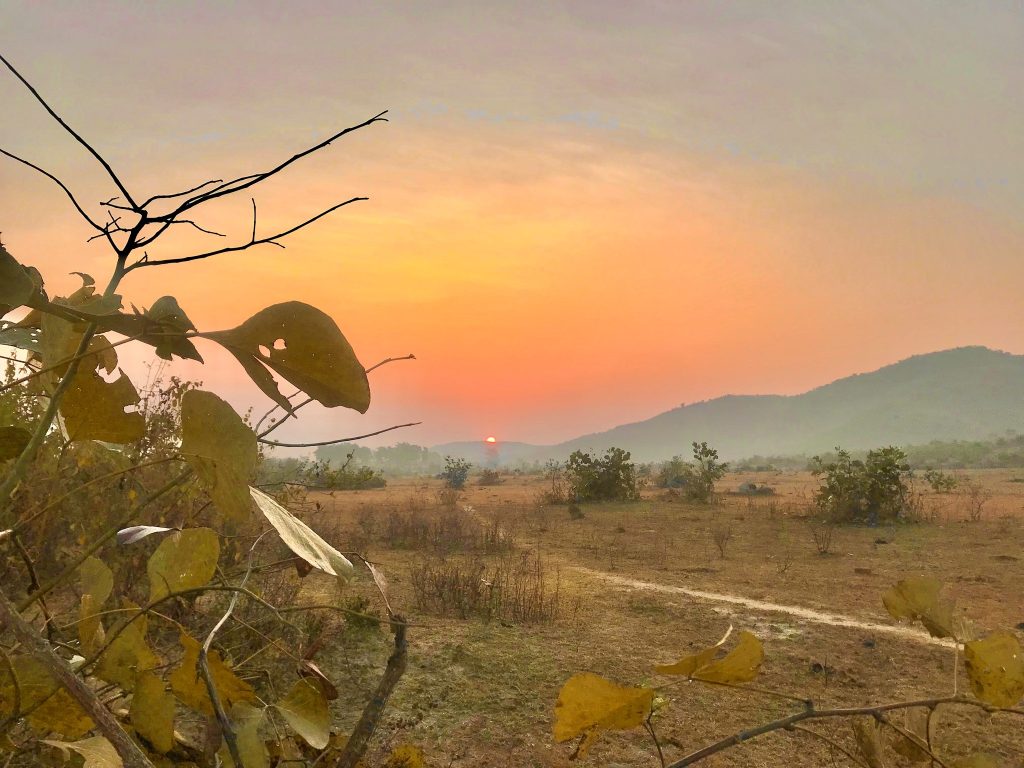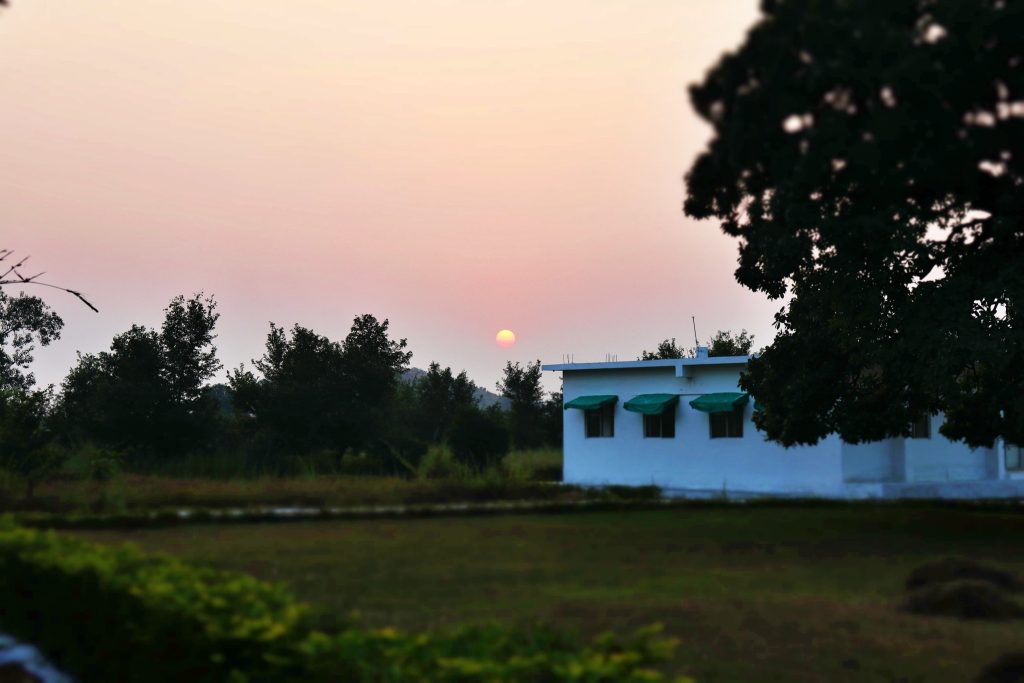Whether you’re a seasoned yogi or new to the practice, you’ll likely only be a few degrees of separation from Yogi Ram. A veritable expert on Classical and Vedic yoga, Yogi Ram has trained more than 1,400 teachers in the last 17 years. Yogi Ram has since founded Arhanta Yoga, which offers Ashram centres in India and the Netherlands. He shares the lessons learned from a life of yogic experiences.
What were your first experiences with yoga? I’m from a religious family, but my schooling was very traditional so we had Yoga as a subject with philosophy, maths, physics etc. It was a very integral part of my life, and it becomes routine after so many years. I was practising every day, even before it was a part of my profession.

What made you decide to turn it into your profession? The lifestyle I wanted wasn’t coming with what I was doing at the time.
And what was your lifestyle like before? I was a professional dancer. It was a very hectic, competitive life with a lot of travelling. It was also a very stressful job, and I wanted something where I could be home, relaxed, with no deadlines or competitions. Now I can get up in the morning, have breakfast with my family, and work a bit. It’s not a hectic lifestyle.
When you do encounter stressful situations, what coping strategies do you use? I try to practice more. When I’m travelling a lot to teach and I’m not able to do my practice, I see immediately that the mind is more easily disturbed. When I do my practice more frequently I can handle everything better, and I am a lot calmer.
What does wellness mean to you? Wellness means balance in the professional life, balance in the personal life, and balance in health. Normally we define it like this. We say the most important thing in life is health, second is your family, third is your career, fourth is your leisure and fifth is your lifestyle. All elements have to be in balance and they have to match each other.

How do you achieve that balance? To me, it’s important to know what I want. Structure is also very important to me: to know what needs to be done and at what time. I have a clear goal of what I have to achieve.
What makes Arhanta Ashrams special? The personal attention. We make sure everyone who comes is not just a number. Even though we get a lot of people coming, we give them all personal attention. We want to know what their goals are, what they want to achieve from this course, what they want to learn, what their challenges are and how far they are willing to push themselves to change.
Who are your role models? My role models are my teachers. One is the teacher who taught me how to run a school properly–he has a dance school and it is a huge setup, with 200 teachers. The other is my first yoga teacher: he was really inspiring, and he motivated me to do better in my practice. The third was my philosophy teacher. He was very strict in his principles, and I learned from him to be steady.

Are Arhanta Ashrams suited to everyone? Yes, they’re for people who are both new and experienced. We also teach classical yoga. People who have done a lot of other styles still find our style very new, because most people practice modern yoga. Classical yoga is really focused on the self: we ask, who am I? That’s the whole purpose of yoga. It’s not based on the physical body and it’s not for muscles or joints, but for spiritual reasons: it’s more focused on a healthy mind, as well as body.
What do you hope people will gain from an Arhanta experience? It really depends on the person. Some people come with the goal of finding structure in their life, others to find time to reflect on themselves and to understand what is important in their lives. Some people really come to just learn about yoga. What you get out of it really depends on what you’re looking for, but they’ll definitely get a reflective experience, more clarity and a clear structure.



